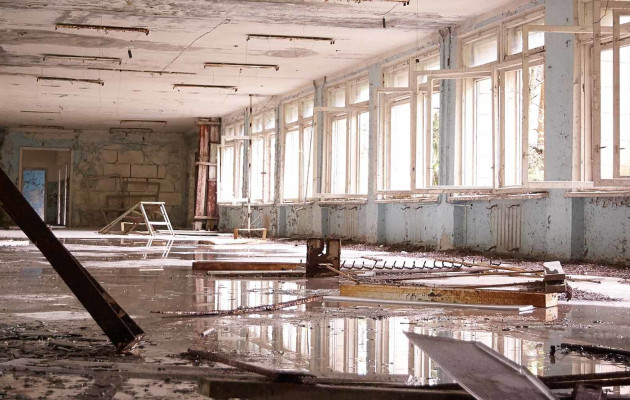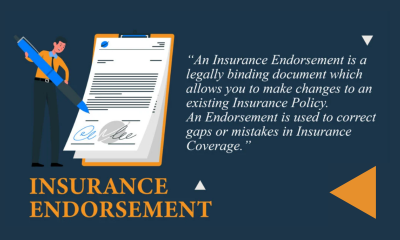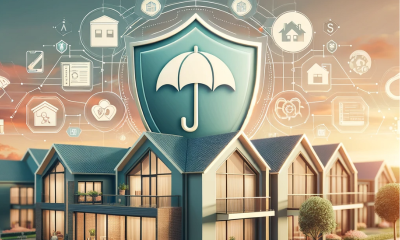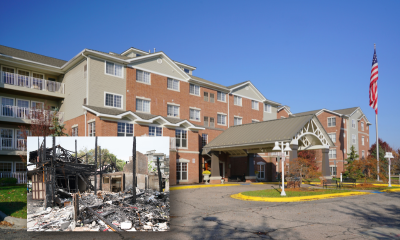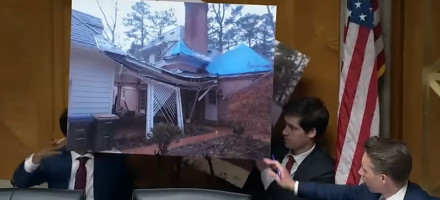Water Damage and Business Income Interruption: A Deep Dive into Time Element Coverages
In the realm of insurance, nursing homes hold a distinct position due to their obligation toward both property maintenance and the well-being of their residents. When water incidents occur, the immediate physical damage is often just the tip of the iceberg. The ramifications extend to complex Time Element Coverages, which are crucial for indemnifying loss of business income. This article illuminates two key extensions, "Extra Expense" and "Extended Business Income," within the scope of Time Element Coverages, especially in the context of water damage.
Water damage presents a unique set of challenges, with potential complications like mold growth and trapped water within walls, which can prolong the restoration process. During this restoration phase, termed as the "Period of Restoration," nursing homes may incur substantial financial strains.
Two pivotal coverages under the Time Element umbrella are:
- Extra Expense: This covers the additional costs to expedite the restoration or to continue operations during the restoration period.
- Extended Business Income: This provides coverage for the loss of business income even after the property has been restored, until the business income stabilizes.
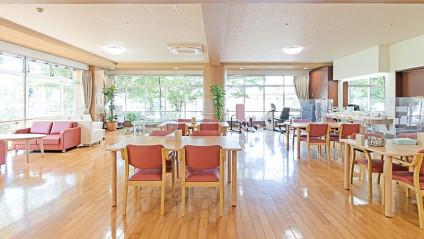
Amid the COVID-19 crisis, a nursing and healthcare center in Illinois, encountered two sequential water damage incidents, significantly impeding operations. Initially, in September 2020, a fault in an underground water supply line to the cooling system precipitated a flood, impacting the lounge, dining room, and two residential wings. While mitigation efforts were in progress, a second water line failure occurred nearly a month later, exacerbating the damage and extending into the previously affected areas, thereby amplifying the restoration challenge.
These occurrences unfolded during a crucial period due to the pandemic, displacing elderly residents from their regular living spaces now deemed uninhabitable. The center, unfamiliar with significant property damage until now, faced the dual challenge of addressing the physical damage and the consequential business interruption. The intricacies of Time Element Coverages became a focal point as the continuous water damage issues necessitated a meticulous evaluation to distinguish the extent of damage caused by each incident, presenting a complex scenario in claims segmentation.
In addressing the water damage, the center engaged experts in water damage restoration to meticulously evaluate and repair the damage to floors, tiling, walls, ceilings, and the electrical system. The process also involved ensuring that areas were thoroughly dried to prevent mold growth, a common issue post-water damage. The "Extra Expense" coverage was pivotal in covering the costs associated with the additional measures required to expedite the restoration process and ensure the facility's readiness to accommodate residents.
On the business interruption front, a thorough examination of the revenue loss from the unoccupied residential wings was conducted. A comparative analysis of nursing home occupancies and COVID-19-related revenue generation within the county helped ascertain the potential revenue that could have been generated. This analytical method highlighted the importance of the "Extended Business Income" coverage in compensating for the revenue loss during the restoration period. The structured approach provided a detailed understanding of the complex relationship between water damage and business interruption, underscoring the need for a comprehensive evaluation to ensure a fair and substantial settlement. This is crucial for expediting recovery and restoring normal operations within.
For nursing home proprietors, delving into the intricacies of Time Element Coverages, particularly in scenarios of water damage, transcends mere financial sagacity. It encapsulates a commitment to ensuring minimal disruption to operations, thereby safeguarding the well-being of the residents. The practical exposition of these coverages, as illustrated in the Illinois healthcare center case, provides a lens through which nursing home operators can better brace for and navigate the financial aftermath of water incidents. This case underscores the importance of a well-navigated insurance claim process in mitigating the financial repercussions of water damages and reinstating a semblance of normalcy during tumultuous times.
__________________
About the Author
Stuart Dorf, JD, CPAU | Executive Vice President
Stuart Dorf, JD, CPAU, Executive Vice President at Globe Midwest™ Adjusters International, is a licensed public adjuster, appraiser, umpire, and attorney who specializes in securing fair insurance claim settlements for property and business owners. With over 20 years of experience in commercial real estate, law, and marketing, he holds licenses in multiple states, actively participates in legal associations, and has a strong entrepreneurial background. He earned his law degree from the Illinois Institute of Technology’s Chicago-Kent College of Law and graduated with honors from Tulane University.
sdorf@globemwai.com | 248.915.0399
Yossi Gottfried, MSA | Regional Vice President
Yossi Gottfried, MSA, Regional Vice President at Globe Midwest™ Adjusters International, is a forensic accountant specializing in business interruption claims. Yossi leads the firm's nursing home/assisted living facility practice group, advising operators on large insurance claims. His expertise lies in applying insurance policy formulas to accurately assess income loss due to property damage, ensuring clients receive a claim reflective of the true monetary value. He holds a Bachelor of Science in Finance from Yeshiva University and a Master’s in Accounting from Wayne State University.
ygottfried@globemwai.com | 248.885.3902

